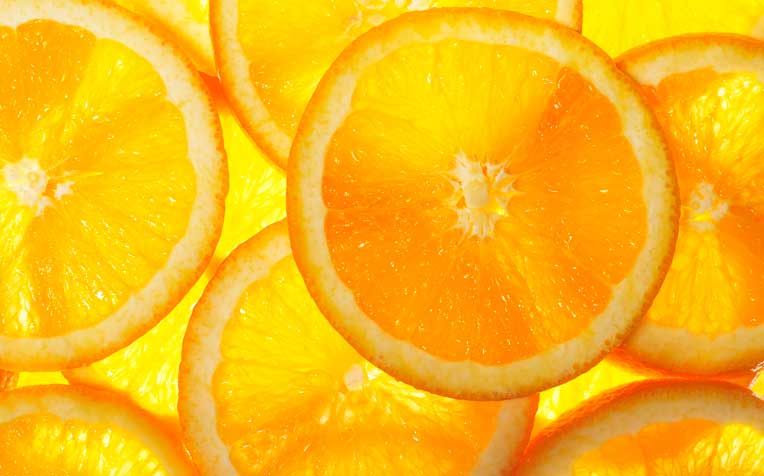Our first instinct when we are worried about getting a cold or the flu, our first knee-jerk reaction is to dose up on vitamin C…. Even more so in these current times.
So what is the truth about vitamin C, does it really help to prevent colds, flus, and other viral infections? How does vitamin C work in the immune system, should we take it daily, if so which, how and when? Sooooo many questions…
This super C Vitamin is well known….. as L-ascorbic acid, it is a water-soluble vitamin and a powerful antioxidant. So what you don’t use, you excrete….. So this vitamin is a daily investment. Most animals synthesise their own Vitamin C, but we cannot and as a super critical vitamin so we must eat it or increase via supplementation.
Antioxidant
As a potent antioxidant, vitamin C reduces what we call oxidative stress which. This means that it may lower risk factors of chronic disease heart disease, certain cancers, eye diseases, and neurodegenerative conditions that affect cognitive health. Vitamin C also acts to regenerate other antioxidants, such as vitamin E and glutathione…
White Blood Cell
We don’t hear all that much about Vitamin C in the production and protection of white blood cells, especially important when fighting off infections. Very relevant right now and the one thing I have encouraged all my client to have and take regularly..
Skin Health
Another very important motivation particularly for me is Vitamin C as part of your external defence system. It is super important, as it plays a primary role in the health and integrity of your skin. Vitamin C is especially important to produce collagen, yes ladies, collagen, the most abundant protein in your body’s connective tissue. It helps strengthen your skins barriers, the spread of viruses and help with all the handwashing we are doing? Vitamin C and a good moisturiser I’m sure!!!
The recommended daily allowance ids between 15mg to 120mg every day… the upper end def for when pregnant, lactating or elderly. The average amount is 75-90 mg of daily vitamin C, which is super easy to obtain…. One large orange has 100mg so there you go!! We absorb about 70-90% of our C, the rest is passed out in t he urine.
Can You Get Too Much Vitamin C?
Our body is very clever when it comes to the C vitamin. We can generally have 2000mg without too much of a problem. The most common side effects are digestive, like diarrhea, nausea, and cramping — primarily due to unabsorbed vitamin C sitting in the gastrointestinal tract.
For some who have too high iron, excess C could be a problem, as Vitamin C will increase, kidney stones as in can increase oxalate in urine. Although rare!!! Always check meds too…
Should You Take Vitamin C Supplements?
If you want to boost our immune system taking a supplement may help …. It may be hard to eat a lot of vitamin C rich foods, as we don’t necessarily want to add to many fruits and juices top our total intake… so a good supplement is ok… I certainly am on board with this myself especially at this time of pandemic.
Supplements can help speed up recovery, improve defences and reduce more severe things. With COVID-19 pandemic some scientists believe that a Vitamin C can help calm our immune system and control inflammation and respiratory distress. Despite the unknown we can be rest assured that it would be helpful… BUT WHAT TO BUY?
Intravenous is the super way but not as easy nor cost effective. Conventional Vitamin C supplements may have fillers and other unnatural things… so the ascorbic acid and high Vitamin C rich natural powders is my go to… A good supplement (feel free to ask for advice here) or a good Camu camu, Maca and Berries would be my advice… we use these in our daily smoothies…
1. Am J Clin Nutr 2000 May;71(5):1147-60. doi: 10.1093/ajcn/71.5.1147.
Prediction of Dietary Iron Absorption: An Algorithm for Calculating Absorption and Bioavailability of Dietary Iron

Fruit and vegies are great sources of the Vitamin C, great, although modern day agricultural practices have depleted our quality and may not offer the same nutrition….. Studies showing a 30% decrease or depletion of our vitamins.
So, choose your Vitamin C source and now be conscious of how prepares as Vitamin C is unstable. The amount of nutrition depends on how long they have been sitting there, room temperature etc etc…. so bottom line try and get fresh or organic……
So, it’s a good idea to buy organic produce whenever possible.
- 1 medium guava = 126 mg
- 1 medium red bell pepper = 152 mg
- 1 medium orange = 70 mg
- 1 cup of raw broccoli = 40 mg
- 1 small lemon = 30 mg
- 1 small papaya = 95 mg
- 1 cup of raw Brussels sprouts = 75 mg
- 1 cup of raw strawberries = 60 mg
- 1 kiwi fruit = 64 mg
- ¾ cup of diced pineapple = 48 mg
- 1 cup of frozen cauliflower florets = 21 mg
- 1 cup of raw cantaloupe = 57 mg
- 1 large tomato = 25 mg
Lia Triantou




Recent Comments